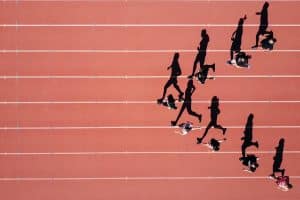Broadcasting the 2023 Women’s World Cup: A Chance To Make a Difference
by Jean-Baptiste Guegan | Why should we buy the rights to the next FIFA World Cup? The Cup will take place from July 20 to August 20 in Australia and New Zealand. A unique opportunity to "bring women’s soccer to the forefront and show that it is just as important as men’s football", as FIFA General Secretary Fatma Samoura recently put it. And yet, not everyone will be able to see it. Even today, some broadcasters are unable or unwilling to finance the rights to broadcast the event, thus depriving millions of spectators of the event. France, Italy, Germany and the United Kingdom, all historic footballing hotspots, are among the absentees.










